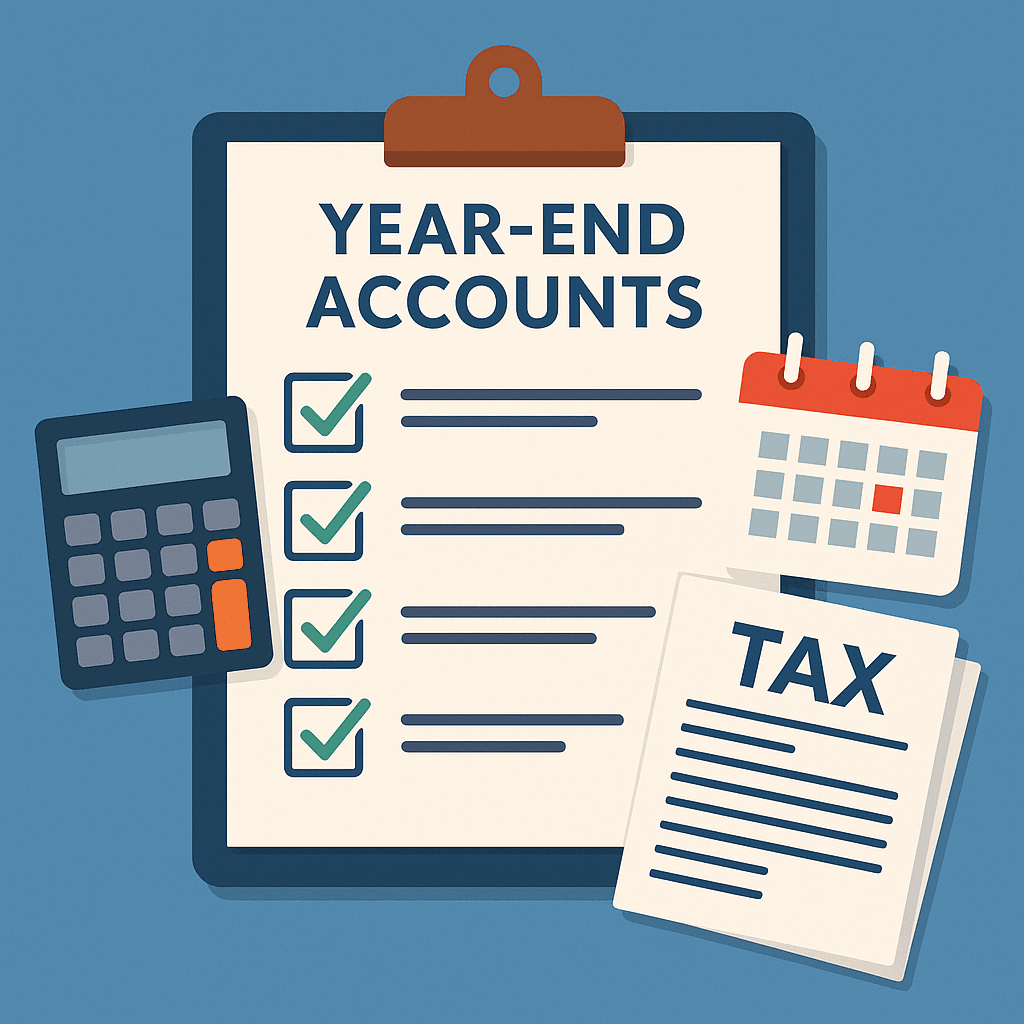Launching a new business can be an exciting yet financially challenging experience. One of the key ways UK start-ups can manage their cash flow and reduce their tax liability is by understanding what qualifies as an allowable business expense. At DD Accounting, we regularly support entrepreneurs in navigating the complexities of HMRC guidelines to ensure they claim what they’re entitled to — and avoid costly mistakes.
This blog breaks down the rules around business expenses for UK start-ups, covering what you can claim, what you can’t, and how to keep records that keep HMRC happy.
What Are Business Expenses?
Business expenses are the costs you incur “wholly and exclusively” for the purpose of running your business. These can be deducted from your income when calculating your tax bill, which means lower taxable profits and, therefore, less tax to pay.
Whether you’re a sole trader, limited company, or partnership, allowable expenses vary slightly depending on your business structure — but the core principle remains the same: if the cost is essential to your business operations, it is likely to be deductible.
✅ Expenses You Can Claim as a UK Start-Up
Here are some common business expenses that are generally claimable:
1. Office Costs
- Rent for office space or co-working facilities
- Business rates
- Utility bills (electricity, gas, water)
- Office supplies like stationery, printers, and postage
2. Equipment and Assets
- Computers, phones, tablets, and other essential devices
- Business software and licensing (e.g. accounting or design software)
- Furniture for business premises
For items expected to last over a year (e.g. laptops, machinery), these are usually claimed as capital allowances, not day-to-day expenses.
3. Professional Services
- Fees paid to accountants, solicitors, or consultants
- Business insurance (e.g. public liability, professional indemnity)
- Bank charges and interest on business loans
4. Travel and Transport
- Fuel, parking, and vehicle servicing (if using your vehicle for business purposes)
- Mileage allowances if using your own car (45p per mile up to 10,000 miles, then 25p after)
- Public transport fares for business journeys
- Hotel accommodation and meals when staying away for work
Commuting to and from your regular place of work does not count as a business expense.
5. Marketing and Advertising
- Website design and hosting
- Social media promotions and PPC ads
- Flyers, business cards, branding, and signage
6. Training and Development
- Courses that enhance your current business skills or are relevant to your trade
- Subscriptions to industry publications or trade bodies
7. Staff Costs
- Salaries, bonuses, pensions, and National Insurance contributions
- Recruitment fees
- Employee training or staff events
8. Use of Home as Office
If you’re working from home, you may be able to claim a portion of:
- Rent or mortgage interest
- Council tax
- Utilities
- Internet and phone bills
You’ll need to calculate the percentage of these costs that directly relate to business use, or use HMRC’s flat rate if eligible.
❌ Expenses You Can’t Claim as a UK Start-Up
Some expenses, even if useful, are not allowable for tax purposes. Common disallowed costs include:
1. Personal Expenses
- Clothing (unless it’s a uniform or protective gear)
- Meals and drinks (unless on business travel)
- Personal use of business equipment (e.g. using a work phone for private calls)
2. Client Entertainment
- Meals, drinks, and hospitality for clients or prospective customers are not deductible — even if they help build relationships.
3. Fines and Penalties
- Parking tickets, HMRC late payment fines, or other penalties can’t be claimed.
4. Commuting Costs
- Travelling from home to your regular place of work is considered personal travel, not a business expense.
5. Training Not Related to Current Business
- Courses or qualifications that do not relate directly to your existing business activities are not allowable. For example, a yoga teacher training to become a web designer can’t claim that course fee through the yoga business.
Top Tips for Claiming Business Expenses
To stay compliant and avoid unexpected tax bills, consider these key practices:
📌 1. Keep Detailed Records
Maintain clear documentation for every expense — invoices, receipts, and bank statements. Store them safely for at least six years, as HMRC can request proof at any time.
📌 2. Separate Business and Personal Finances
Open a dedicated business bank account. This makes bookkeeping and expense tracking much simpler and helps you avoid mixing personal costs with business ones.
📌 3. Use Accounting Software
Cloud-based tools like QuickBooks, Xero, or FreeAgent can automate much of your bookkeeping, categorise expenses, and ensure you’re claiming everything you’re entitled to.
📌 4. Review Regularly
Don’t wait until year-end. Review your expenses monthly to make sure nothing’s missed, misclassified, or duplicated.
📌 5. Work with a Trusted Accountant
At DD Accounting, we support start-ups across the UK in optimising their expense claims and staying compliant with HMRC regulations. Our team helps you stay tax-efficient without falling foul of the rules.
Conclusion
Understanding what you can and can’t claim as a business expense is a crucial part of running a successful start-up. By keeping accurate records, making the most of allowable deductions, and avoiding common pitfalls, you’ll keep more money in your business and stay on the right side of HMRC.
If you’d like tailored advice or support with bookkeeping, tax returns, or setting up accounting software, DD Accounting is here to help. Let us take the stress out of finances so you can focus on growing your business.




